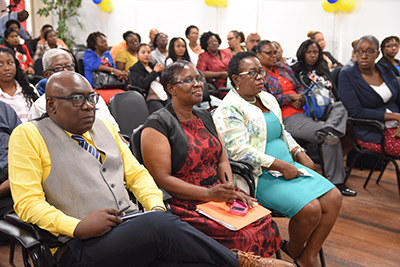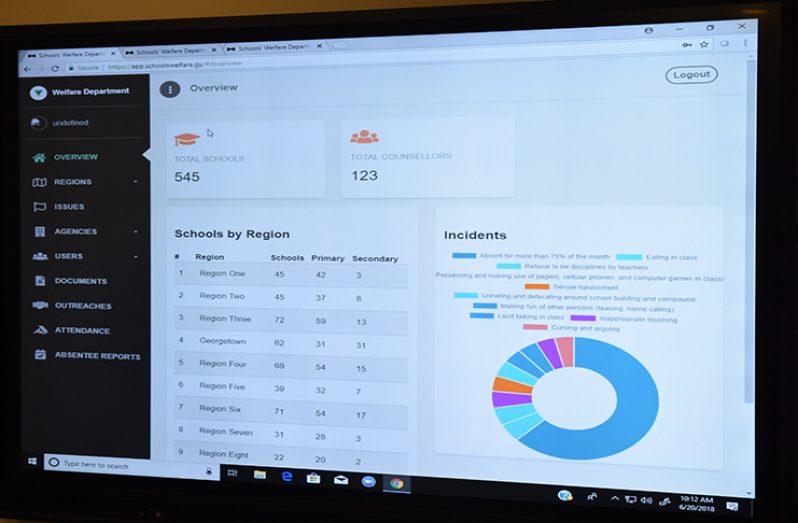THE Ministry of Education Schools Welfare Department has launched a new electronic database system which will improve welfare services to school-aged children affected by social issues.
It was launched at National Centre for Educational Resource Development (NCERD) on Wednesday. The Schools Welfare Department offers supportive roles to children for social, psychosocial and other problems which negatively impact their behaviour and performance at school.

It also offers services to parents and teachers, helping to form stronger relationships for cooperation towards the ultimate benefit of the child.
In the past, the unit was plagued by inaccurate and outdated information as a result of poor record-keeping. However, the new database system will allow for improved record-keeping; better tracking of children and proper management, assessment and updating of information.
It will also improve communication between the Schools Welfare Unit, Regional Education Officers and schools while catering for information-sharing between the departments and other agencies. The database system, created by Intellect Storm, is made only available to the relevant authorities and is fully supported by the United Nations Children’s Fund (UNICEF).
At the launching, brief remarks came from Chief Education Officer (CEO) Marcel Hutson who thanked the team involved in designing and creating the new system which, he added, represents the effective use of technology for the country’s transformation.
“As the Ministry of Education, if we’re going to be relevant, if we’re going to be effective, we must use data and therefore I am happy that we have gone this way,” he said, adding:
“We have to ensure that our young people, even though they might make some mistakes … that we recognise that it is not the end of the road for them and therefore our role is critical.”
At the event, Hutson revealed another initiative of the Education Ministry which will see youths receive mental health attention through the provision of mobile unit which will travel throughout communities.
“This unit will be driven to different areas and communities based upon their needs. There is already a schedule prepared as to how this unit will be used so that children can be exposed to psychosocial counselling and whatever needs they may have that we need to respond quickly to in terms emergency,” he said.
Meanwhile, remarks came, too, from UNICEF Education Specialist Michelle Rodrigues who reminded that the database must be used in the best interest of the children. “Going beyond the launching of a database, it’s how we use the database in the best interest of children and in making certain that we can reach the needs of every child who is affected by some challenge or the other,” she said.
She revealed that UNICEF is in the final stage of completing a study on out-of-school children, in collaboration with the Ministry of Education, which will help to provide additional data to bridge the gaps in this regard.
Rodrigues then advised: “For the guidance and counselling unit, you now have a bigger task in making certain that you upgrade and keep your database system relevant, so that your database will have things like those who may be suicidal, those who may be out of school … unless you know that, you would not know who you should be tracking and why you should be tracking them.”
At the event, the media was reminded that while it plays a crucial role in disseminating information, it must remember journalistic and photojournalistic ethics when it comes to interviewing or taking photographs of children.
The new database system provides information from all secondary and primary schools across the country, even as efforts are being made to include nursery schools.
It shows absentee reports, the number of counselling sessions conducted, incidents occurring in each region, a list of agencies which can assist the welfare unit and several local Acts and policies supporting the rights of children.




.png)









